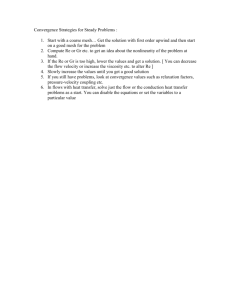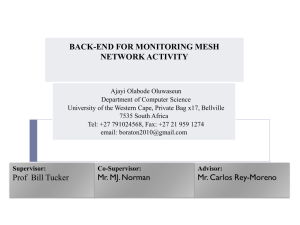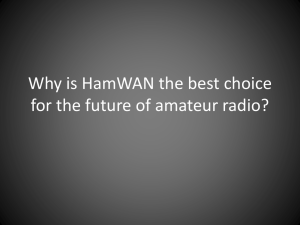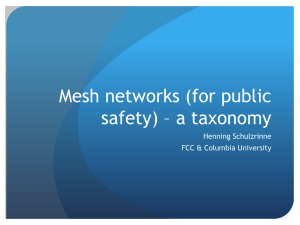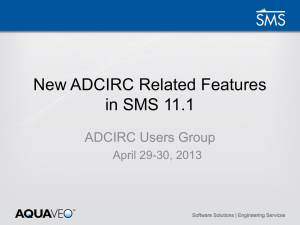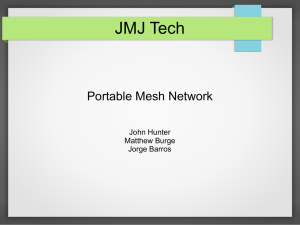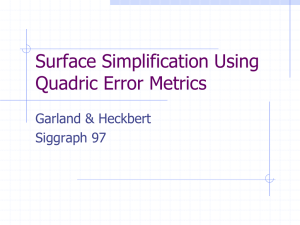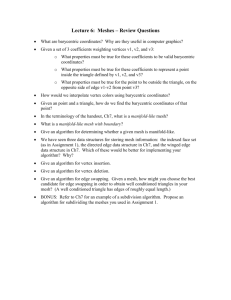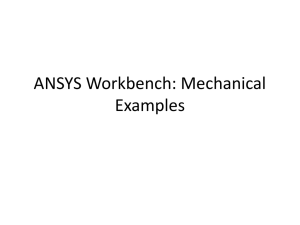09 Hope & la Velle
advertisement
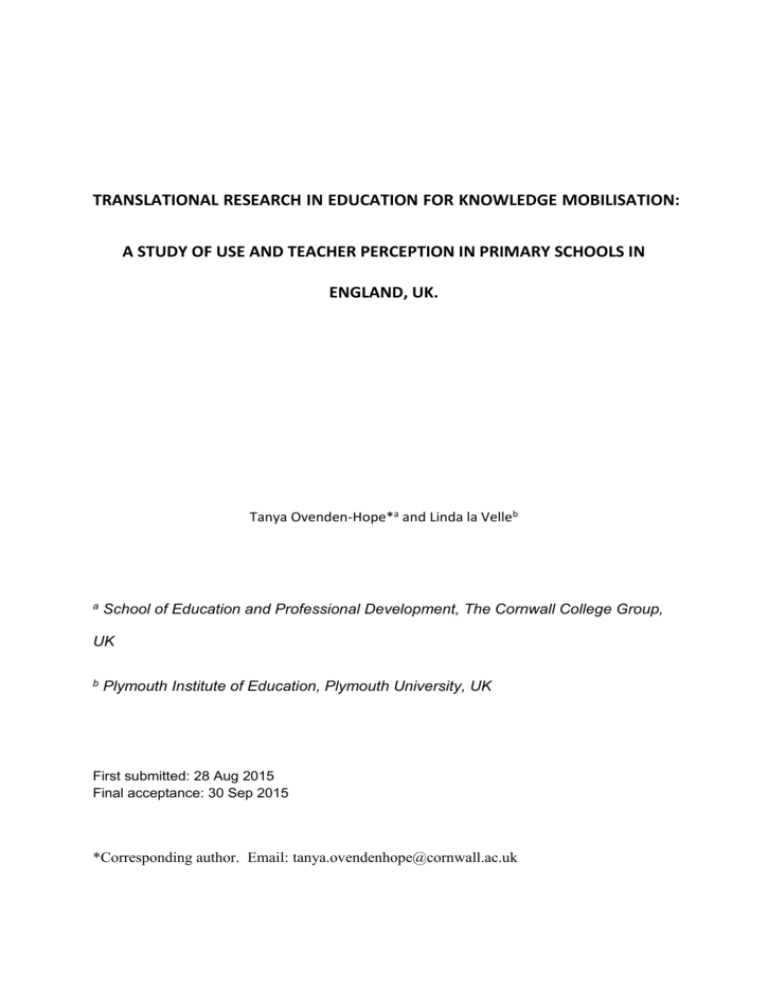
TRANSLATIONAL RESEARCH IN EDUCATION FOR KNOWLEDGE MOBILISATION: A STUDY OF USE AND TEACHER PERCEPTION IN PRIMARY SCHOOLS IN ENGLAND, UK. Tanya Ovenden-Hope*a and Linda la Velleb a School of Education and Professional Development, The Cornwall College Group, UK b Plymouth Institute of Education, Plymouth University, UK First submitted: 28 Aug 2015 Final acceptance: 30 Sep 2015 *Corresponding author. Email: tanya.ovendenhope@cornwall.ac.uk ABSTRACT In order to achieve the standard expected in the classroom, teachers benefit from continuing professional development (CPD) (HMIE, 2009) that enables access to resources with which to inform their practice. Smith and Helfenbein (2009:91) identified that translational research ‘creates a space for collaborative, co-constructed inquiry that values and utilizes the expertise of all stakeholders involved’. This paper presents an overview and investigation of a founding model, MESH (Mapping Education Specialist knowHow guides, www.meshguides.org), for translational educational research and knowledge mobilisation in schools and colleges. MESH guides aim to support improved evidence-based and researchinformed teaching practice, to in turn improve professional practice for better student attainment. Findings from this qualitative investigation focussing on the use of one MESH guide on the teaching and learning of spelling, (Harrison and Brooks, 2013) in 120 Primary Schools in the South West of England, UK for curriculum development suggest that teachers value evidence based resources for curriculum planning and delivery. Furthermore, when resources such as MESH guides are used they do help in planning curricula and lessons and have an impact on both pedagogy, by improving opportunities for learning, and on practice, by reducing planning time. Translational research for knowledge mobilisation in education is shown to give confidence to the teacher through resources that are perceived to be ‘tried and tested’ and can therefore be ‘trusted’ to improve learning. Keywords: Teaching, CPD, MESH, translational research, knowledge mobilisation, education. INTRODUCTION Evidence-based and research-informed resources have been tried and tested so are of great value to the busy teacher, who can use them/adapt them for the class’s needs. Teacher Over several decades the quality of teaching has been identified internationally by a large body of educational research as having a critical impact on student attainment e.g. Murnane (1975); Rockoff (2004); Sutton Trust (2011). The Sutton Trust stated that for England ‘improving the effectiveness of teachers would have a major impact on the performance of the country’s schools, increasing the attainment of children across the education system’ (2011: 5). In order to achieve the standard expected in the classroom, teachers benefit from continuing professional development (CPD) (HMIE, 2009) that enables access to robust resources with which to inform their practice. Teachers, as the chief resource in schools (Sutton Trust, 2011), require access to an evidence-based resource that is accessible through common technology, e.g. smart phones and the internet, to support improvement in pedagogic content knowledge [PCK] (Schulman, 1987) and thereby enhance learners’ attainment. In this paper we propose the use of translational research, more often associated with medicine, but here referring to evidence-based resources for educational practitioners enabling knowledge mobilisation. The vehicle for the articulation of knowledge mobilisation is MESH (Mapping Education Specialist knowhow) guides, (www.meshguides.org). MESH guides (Leask, 2011; Ovenden-Hope and la Velle, 2014; Jones et al., 2015) use an accessible multimedia map as a diagrammatic database of subject-specific, research-based knowledge about the pedagogy of topics across curricula. Building upon existing portals and evidence bases for education, MESH summarises and makes accessible existing evidence whilst also documenting gaps in knowledge and mapping points of contention. The approach is inspired by the professional and academic resources available in other disciplines, (e.g. ‘Map of Medicine’ and NICE health guides), but recognises the challenges education has as ‘a discipline across disciplines’. The MESH guides ‘remap’ the evidence base, as well as document the different models and metaphors utilised for CPD in schools and colleges. The quality of MESH guides is peer-reviewed and open to comment from any educator, creating outstanding opportunities for academic impact and discourse. MESH guides propose the use of translational research, more often associated with medicine, but here refer to evidencebased resources for educational practitioners enabling knowledge mobilisation. MESH Guides provide that ‘space’ for co-created, peer reviewed, evidence-based, internationally sourced educational resources. Teachers (and all educational professionals) have open online access to both research-informed pedagogic knowledge and evidence-based pedagogical tools, such as explanations, demonstrations, modelling and case studies. MESH guides aim to underpin professional judgement/s with research-informed and peer reviewed evidence; raise learner attainment through informed professional teaching; support educators in pooling, building, testing and publishing knowledge in new ways through world-wide collaborations and work cost-effectively to revisit, update research and republish research for improved teaching in ways previously not possible. By examining the impact of MESH guides on teachers’ curriculum planning and of the value they perceive these guides, and other evidence based resources, to have, a contribution is made to our understanding of how translational research can be used in schools. There are however challenges to be faced in achieving a research-informed teaching profession and to for the use of resources, such as MESH guides, to mobilise knowledge. In this paper we report the use of one MESH guide, ‘spelling’ (accessed at http://www.meshguides.org/category/literacy-mesh-guide/spelling-literacy-mesh-guide/), in the curriculum planning of teachers in primary schools. A qualitative methodology was employed in which teachers in 120 primary schools in the South West of England were surveyed to understand their knowledge of, use of and engagement with the concept of MESH guides. These teachers were not provided with any training on how to access or use MESH guides, but instead were told of the resource by their Head Teacher and then left to consider its use (thereby simulating how most on-line resources are found and utilised). TEACHING AS A RESEARCH-INFORMED, EVIDENCE BASED PROFESSION. “The results from TALIS [The Teaching and Learning International Survey run by the OECD (Organisation for Economic Co-operation and Development)] suggest that in many countries, education is still far from being a knowledge industry in the sense that its own practices are not yet being transformed by knowledge about the efficacy of those practices.” OECD (2009:3) Shulman (1987) described a way of theorising the sophisticated and complex knowledge bases employed by effective teachers, which he identified as pedagogical reasoning. He defined this as the thinking and planning that a teacher employs in preparing for, planning, delivering and evaluating lessons and schemes of work. Shulman (1987) identified 7 types of knowledge, which include knowledge about the curriculum, general pedagogy, disciplinary content, discipline specific pedagogy, students and institutional arrangements. As expertise in practice, the teacher’s Pedagogical Content Knowledge (PCK) was emphasised as most important for teachers considering how to teach specific content effectively. PCK represents the blending of content and pedagogy that cannot be separated into an understanding of how particular topics are organised, planned for and modified for delivery, thereby differentiating for the range of knowledge, interests and abilities of the learners. It distinguishes the teacher’s understanding of the subject specialism content from that of the pedagogy. Crucial to effective teaching is knowledge informed by research and evidence. While teachers have used wide ranging and diverse knowledge in planning lessons (Kreber and Cranton, 2000; Shulman, 1986), access to research informed knowledge has, until relatively recently, been limited to hard copy academic books and journals. The technological changes allowing free and open on-line access to educational research has opened up new opportunities for teachers to utilise new forms of PCK, such as MESH guides, that are evidence-based and research-informed. However, the use of such resources in the planning of teaching and for the teacher’s own continuing professional development (CPD), rather than planning for use of technology in the delivery of lessons (Mishra and Koehler, 2006), is explored within this paper. Translational research for knowledge mobilisation in education through free on-line access can only offer further development of PCK for teachers. The UK’s BERA/RSA (2014) report into research and teacher education recommended that UK teachers should be supported professionally to become researchliterate. In this paper, we argue that when a teacher’s subject knowledge is mobilised through translation research and evidence, PCK is enhanced and pedagogic reasoning is empowered. By becoming research literate, following Shulman’s model, teachers should develop improved practice. The BERA/RSA ambition, also recognised in the criteria for teaching school alliances (NCTL, 2014), is for teaching to become a research-informed profession is reflected in the considerable and growing body of research evidence suggesting that school-university partnerships are highly effective in educating beginning teachers (see for example, Zeichner, 1992; Burton, 1998). More recently these partnerships have come together to provide robust and accessible resources, for and with teachers, exemplified by MESH guides. It has long been accepted that a theoretical (academic) training goes hand in hand with practice as an exemplary means of professional education (see for example Levine, 2006). There is some debate about a medical education model for the teaching profession, which is outlined later in this paper and provided as a comparative table in Table 1. However, the synergies between training and developing teaching practice are recognised (Levine, 2006). Furthermore, a close relationship between the professional education programme in the HEI and the practice placement must exist, crucially including close and on-going collaboration between the academic (theory and research skills) and the ‘clinical’ (practical and hands on) (McLean Davis et al, 2013). The use of the word ‘clinical’ in describing practice-based professional education should be understood not to be restricted to the medical and health professions, but all those that exemplify the characteristics, identified by Alter and Coggshall (2009), in the following table, defined as a state of advanced professional critical thinking linked to action and informed by research and evidence (la Velle, 2013). Table 1: Synergies between Clinical and Teaching Practice Clinical practice Characteristics Centrality of clients. Clinical practice involves the direct observation and treatment of users of that profession, e.g. patients, pupils or clients Knowledge domains. The work of clinical practice professionals is highly complex, requiring general and specialised knowledge and skills as well as theoretical, practical, and technical understandings not possessed by lay people. Teaching Practice Characteristics Integrity; recognition of values; exercise of moral judgement Level and complexity of range of professional knowledge bases Use of evidence and judgement in practice. Criticality; research-informed and evidence In clinical practice professions, determining based practice. the best course of treatment requires knowing an individual client (through observation, questioning, and other diagnostic or evidence collection techniques) as well as knowing what research has shown to work with other clients in similar situations. Community and standards of practice. Clinical practice professions form a professional community that monitors quality, distributes knowledge, and creates standards of practice. Professionals and professional organisations, including training institutions, are held accountable to these Joining the ‘discipline club’ within a professional learning community of teachers standards of practice. Education for clinical practice. Prior to being granted full access to practice, clinical practice professionals must successfully complete rigorous academic and practical training. Candidates must learn to work effectively with clients, obtain a high degree of knowledge, and understand how to use evidence and judgement in practice, and comprehend and value the standards of their respective professional communities. Acculturation; acquisition of professional identity; becoming autonomous CHALLENGES FOR TRANSLATIONAL RESEARCH FOR EDUCATIONAL KNOWLEDGE MOBILISATION Several generic challenges face the drive towards teaching as an evidence-based and research-informed practice for teaching, some of which are specific to the use of MESH guides as an on-line resource: underachievement need for personalisation accountability vs autonomy Challenges Digital Futures theory/practice links relevance of research evidence Relevance of Research Evidence Where research lays down the foundations for professional theory, it has relevance and impact. In science, basic research continues to fill in the missing pieces of the jigsaw, but research into educational practice and policy can all too often be seen to lack relevance, a charge that has frequently been levelled at educational research, (Hargreaves, 1996). The challenges of undertaking action research as part of professional practice, identifying areas where research is needed and scaling up localised research efforts are all of pressing pertinence for individual professional development and school improvement. Accountability versus Autonomy. Striking a balance between professional accountability and professional autonomy is required, because an imbalance can threaten the status of a profession. For example, in the UK teachers have at times felt de-professionalised as a result of over-prescription of the National Curriculum and its assessment instruments, forcing their pedagogic and curricular decision-making in order to comply with inspection regimes and examination specifications. Teacher accountability varies between countries, but currently in the UK school inspection and exam league tables have direct impact on funding and resource; HEI academics are judged on impact, reach and significance in the 5-yearly Research Excellence Framework (REF) and teacher educators are judged on how their newly qualified teachers perform in the classroom through the system of inspection. In other countries professional monitoring varies, but for teachers globally professional, moral and contractual accountabilities apply. The Requirement for Personalisation in teaching and learning Personalisation (otherwise called differentiation or adaptation) of learning as PCK is a requirement of the teacher that has assumed increasing importance in recent years, featuring in the development of teacher education and national curricula across the world, for example, the development of skills of interventionist practice, high-level analytic ability and capability in the use of data and evidence to address the needs of individual learners. This clinical approach to the education and training of new teachers demonstrates the centrality of the learner, the exercise of clinical and ethical judgement and use of evidence in practice. This has serious implication for personalised professional development of teachers because of their different needs and working contexts. Arguably, personalisation is one of the most difficult of skills to acquire when the novice teacher has so many factors to take into account at each stage of the pedagogic cycle, it is perhaps the professional characteristic that brings teaching onto a par professionally with, for example, medical and legal practitioners. Theory/Practice (Praxis) Links Making links between theory and practice is an essential activity of any profession that is grounded in research-informed practice. Translational research in medicine often has the strap-line ‘from benchtop to bedside’, meaning that research carried out in the biomedical science lab can be translated directly to good use for the patient in the hospital bed. This idea has currency in some, but not all, other professions, so for those without a conduit for translational research this is a current, and very important, challenge. Underachievement In the UK, as in many other countries there is a long tail of chronic under-attainment and a widening gap between the highest and lowest achievers. This has been the focus of political initiatives in UK under successive governments in recent years (DfE, 2015), but still remains a serious issue for equality of opportunity and maximisation of outcome. Digital Futures The effortless, accessible and cheap connectivity to vast and burgeoning repositories of knowledge has been enabled by the increasing power of mobile communications technologies. Opportunities to meet each of the challenges above are promised by these advances in technology, but that very power presents challenges of its own, such as credibility and trustworthiness of resources (Hunt, et al., 2006, Davies and Pittard, 2008). The technological revolution now provides the potential for possibilities for education that have never existed before: low-cost collaboration through on-line communities; quality assurance through a Wikipedia-type approach; the ability to crowd-source data; education professionals familiar with web 2 tools and a new, rapid method of dissemination through web-publishing. A digital futures vision for education as an evidence-informed profession would be for: 1. Educators to collaborate to develop such a resource. 2. Researchers, research funding bodies and teachers undertaking research easily to see gaps in the research base, see areas that were well researched, find questions that teachers want to be researched and cost-effectively collaborate across regions to scale up and test out emerging practice in different settings. 3. Teachers, student-teachers and newly qualified teachers to be able easily to access research-based pedagogic content knowledge about barriers to learning, specific concepts and the pedagogical tools such as explanations, demonstrations, modelling, questioning that experienced and successful teachers use to help learners overcome their personal barriers to learning threshold concepts. Evidence The Organisation for Economic Cooperation and Development (OECD, 2009: 3) has issued a further challenge, calling for the “creation of ‘knowledge-rich’, evidence-based education systems,” to transform all countries economic fortunes. Having a well-organised evidence base is essential for any profession, as argued above. For practitioners in any profession, access to easily useable, web-based repositories and systematic reviews of literature are essential tools. In some professions, however, evidence exists in isolated ‘silos’ as a result of dispersed efforts, making knowledge difficult to find and quickly out of date. In the UK, the move of initial teacher education/training from being predominantly based in and run from Higher Education Institutions (HEI) into schools means that student teachers in school placements have reduced physical access to research articles and even less time to read and absorb them. This is even more so the case for many practicing teachers. As a sector, the education profession has a poorly organised knowledge base compared with, for example, that of the medical, legal or aero-engineering professions. If the research-generated evidence base in education is going to be of use to teachers in their professional development, then access to robust knowledge to inform their pedagogic reasoning is essential. Currently, many articles report research that is small-scale and so is difficult to know whether it is worth changing practice. Research synthesis methods are only of use where articles are written to a high standard so there can be comparisons between articles. There are many web-based repositories and systematic reviews, such as those undertaken by the EPPI Centre (http://eppi.ioe.ac.uk/cms/) and the Campbell Collaboration (http://www.campbellcollaboration.org/) but for a busy teacher, or stretched student teacher, these can be less than immediately accessible and useable for their planning, teaching and reflection. However, keeping a professional knowledge base up to date is a massive task. Improving continuing professional development (CPD) for teachers is a major challenge for both developing and developed countries. Our research presented in this paper explores the use of evidence-based and research-informed resources easily accessible through the internet by teachers directly to inform curriculum development and pedagogic reasoning. The time for translational research and knowledge mobilization in education is now. ‘The advent of digital technology’ is bringing ‘dramatic changes in the process of teaching and learning’ (Mishra and Koehler, 2006: 1017-1018) that had previously lagged behind change in the rest of society. THE INVESTIGATION Teachers are the main resource in schools (Sutton Trust, 2011) and should benefit from free on-line access to evidence-based resources that could improve enhance their pedagogic content knowledge [PCK]. A qualitative investigation examining teachers’ perceptions of the impact of using MESH Guides on spelling for their teaching and curriculum planning was designed and implemented in 2014/15. A case study approach was used with a sample group of 120 primary schools (student age 5 – 11) in socio-economically disadvantaged areas in the South West of England (Cornwall and Devon). Head Teachers asked their teaching staff to consider using the Spelling MESH guide to inform their curriculum planning at the beginning of the academic year 2014. This approach was taken to introducing teachers to MESH guides based on the assumption that it is an online resource and access would be self-determined and use self-informed. At the end of the academic year an on-line survey was sent to sample schools for distribution to teachers with a request to complete. The survey was short (taking about 5 minutes to complete) and enquired about use and impact of MESH guides on the teacher’s planning for, and teaching of, spelling; about the value perceived to learners in using the spelling MESH guide; why teachers did not use the spelling MESH guide and of the perceived use and value of online researchinformed/evidence based resources for curriculum development and professional development more generally. Respondents were also given an opportunity to declare an interest in writing a MESH guide, thereby establishing interest in the development of coconstructed translational research for knowledge mobilization in education. The survey contained 10 questions eliciting both quantitative and qualitative responses. See Table 3 for survey questions. Table 3: Teacher survey questions 1. Did you access the MESH guide on spelling? 2. Did you use the MESH guide on spelling to inform your curriculum/lesson planning? 3. In what way/s, if any, did the MESH spelling guide inform the way you taught? 4. Were you aware of any changes in the quality of student learning as a result of having used the MESH spelling guide in your planning and teaching? 5. Did you find any aspects of the MESH Spelling Guide useful when planning your teaching of spelling? 6. What aspects of the MESH spelling Guide were of less interest/importance to you when planning your teaching of spelling? 7. Why did you choose not to use the MESH guide? 8. Do you use any other free on-line evidence-based and research-informed resources for planning curriculum/lessons? 9. Please use this space to comment on the value of evidence-based and research informed resources for you as a teacher. 10. Would you be interested in collaborating in writing a MESH guide? FINDINGS 97 teachers responded to the online survey from 120 schools. These respondents demonstrated that there is a willingness in primary teachers to engage with on-line evidence-based and research-informed PCK when it is perceived as ‘tried and tested’ and therefore expected to improve teaching and learning outcomes. Teachers are not predominantly aware of the presence of MESH guides. Only 5.2% of teachers at the time of the survey had accessed MESH guides. The main reason given for not accessing the MESH guide on spelling was that the teachers had not heard about MESH guides, as this selection of responses show: “Do not know about it” “I have never heard of it.” “I was not aware of it.” “I haven't used it.” ”The what guide?!” This suggests that the teachers had not taken on board the advice of the Head Teacher at the beginning of the academic year to access MESH guides as an additional resource for planning their lessons. Some teachers felt that even though they did not know about it, they did not need it as their school already used appropriate resources for planning lessons: “I didn't know about it and our school already has a spelling program in place.” “I don't use any spelling guides. I focus on phonics.” “Did not need to.” “Using other materials.” “Did not know about it and using school based spelling based on National Curriculum.” “Spelling scheme established in schoo.l” Of the teachers that had heard of MESH guides, 66.7% used it to inform their curriculum/lesson planning and noticed a change in the quality of student learning as a result. All the respondents who used the MESH spelling guide found it useful and helpful as a reference with a ’thorough’ approach. This suggests that with more knowledge about the presence and availability of the MESH guide as a resource for developing PCK, both teachers and learners would benefit. Of those respondents who provided information on why they did not use MESH guides, 94.4% had not heard of MESH guides and 5.6% chose to use other resources. 24.7% of teachers surveyed use online resources for curriculum and lesson planning, such as TES resources, internet phonics sites, Education City, sentence doctor, phonics play, Collins, Inspire curriculum, Hamilton trust. This means that the majority of teachers do not, for reasons that were not explored but would worthy further investigation, do not use online resources in planning lessons. 38.1% of teachers responded when asked to comment on the value of evidence based and research informed resources for teachers. The majority could see the importance of well research (‘tried and tested’) methods that support better learner outcomes, as the following teacher responses exemplify: [evidence based research is] “…becoming more important as education changes and we all become more accountable – before it was all about happy children who had a wide, varied curriculum, now it’s about how to achieve stunning grades whilst still offering the children an enjoyable experience – requires deeper thinking and planning on the part of the teacher.” “I find that by using these resources, my planning is led by pedagogy in a much better way.” “When you know it works, despite your own opinions, research means truth!” “…really important to use evidence based resources – tried and tested is better than a stab in the dark!” “ It gives you the confidence to know that the materials are of a higher quality” “Proves if something works, so it should work for us”. 17.7% of teachers in the survey expressed an interest, and provided contact details, to collaborate in the writing of MESH guides. This figure may not seem high, but given the demands on primary school teachers in their day to day roles, what it does show is a commitment to engage and co-create research-informed and evidence-based resources to enhance and develop the profession’s PCK. CONCLUSION Shulman (1987) raised awareness of the importance of PCK to establish effective teaching practice. Evidence-based and research-informed resources, when used, do help in the planning of curriculum and lessons in following two areas: 1. Pedagogy: it improves opportunities for learning; 2. Practice: it reduces time in planning and gives confidence to the teacher that the resources are appropriate and effective, thus having high efficacy. These resources when known about and accessed on line, free of charge, do improve professional practice and learners outcomes. The importance of marketing and ‘web presence’ for quality resources for teachers is a question that deserves further investigation. How can teachers access and utilize on line educational resources in planning lessons if they are not aware of them? MESH guides provide an opportunity for all teachers to engage with translational research in education, but our research suggests that it lacks the visibility currently to mobilize knowledge in schools. If the quality of teaching is to improve through the use of on-line research-informed resources, and thereby improve student attainment (Rockoff, 2004; Sutton Trust, 2011), a strategy for raising teachers’ consciousness of such models as MESH guides as an asset to curriculum planning has to be devised. In this paper we have proposed the use of translational research, more often associated with medicine, but here referring to evidence-based resources for educational practitioners enabling knowledge mobilisation through MESH guides. We have reported on the use of one MESH guide, spelling, in the curriculum planning of teachers in primary schools. A qualitative methodology was employed in which teachers in 120 primary schools in the South West were surveyed to understand their knowledge of, use of and engagement with the concept of MESH guides. These teachers who used the MESH guide reported a positive impact on their planning and students’ learning, as it enhanced the effectiveness of their PCK. However the majority of teachers were not aware of the existence of MESH guides, which suggests that further work needs to be done in promoting on line evidence based and research informed resources for translational research knowledge mobilisation in curriculum planning. REFERENCES Becta (2006) Hunt, Malcolm and Davies, Steve and Pittard, Vanessa, British Educational Communications and Technology Agency (BECTA), corp creator. (2006) Becta review 2006. Evidence on the progress of ICT in education. Becta (2008) Davies, Steve and Pittard, Vanessa, British Educational Communications and Technology Agency (BECTA), corp creator. (2008) Harnessing technology review 2008. The role of technology and its impact on education. Full report BERA (2014) Research and the Teaching Profession: building the capacity for a selfimproving education system. Final report of the BERA-RSA Inquiry into the role of research in teacher education. ISBN: 978-0-946671-37-3 Burton, D. (1998) The Changing Role of the University Tutor within School-based Initial Teacher Education: Issues of role contingency and complementarity within a secondary partnership scheme. Journal of Education for Teaching 24 (2) pp139-146 DfE (2015) 2010 to 2015 government policy: education of disadvantaged children. Accessed on 26/09/2015 at https://www.gov.uk/government/publications/2010-to-2015-governmentpolicy-education-of-disadvantaged-children/2010-to-2015-government-policy-education-ofdisadvantaged-childrenHMIE (Her Majesty Inspectorate of Education) (2009) Learning Together. Livingston, HMIE. Harrison, C. and Brooks, G. (2013) MESHGuide: Spelling: teaching and Learning Spelling in English. Accessed on 26/09/2015 at http://www.meshguides.org/category/literacy-meshguide/spelling-literacy-mesh-guide/ Jones, S., Procter, R. & Younie S (2015) Participatory Knowledge Mobilization: An emerging model for international translational research in Education. Journal of Education for Teaching (in press) Kreber, C and Cranton, P. A. (2000) Exploring the scholarship of teaching. Journal of Higher education, 71(4), 476-495. la Velle, L. (2013) Masterliness in the Teaching Profession: global issues and local developments Journal of Education for Teaching 39 (1) 2-8 Leask, M. (2011). Improving the professional knowledge base for education: using knowledge management and Web 2.0 tools. Policy Futures in Education, 9(5), pp.644-660. Levine, A. (2006) Educating School Teachers. The Educating Schools Project. Accessed on 26/09/2015 http://eric.ed.gov/?id=ED504144 (accessed Aug 2015) McLean Davis, L., Anderson, M., Deans, J., Dinham, S., Griffin, P., Kameniar, B., Page, J., Reid, C., Rickards, F., Tayler, C. and Tyler, D. (2013) Masterly Preparation: embedding clinical practice in a graduate pre-service teacher education programme. Journal of Education for Teaching 39(1) 93-106 Mishra, P. and Koehler, M. J. (2006) Technological content knowledge: A framework for teacher knowledge. Teacher College Record, 108(6), 1017 - 1054 Murnane, R. J. (1975) The Impact of School Resources on the Learning of Inner City Children. Massachusetts, Balinger Publishing. NCTL (2014) Teaching schools: national research and development network. Accessed at 26/09/2015 at https://www.gov.uk/guidance/the-national-research-and-development-network Ovenden Hope, T. and la Velle, L.., (2014) Using ‘MESH Guides’ as Translational Research and Knowledge Mobilisation for Continuing Professional Development in Schools’. CICE2014 Proceedings: Canada International Conference on Education, pp 497-498. Pub: Infonomics Society, ISBN 978-1-908320-24-7 OECD (2009) Creating Effective Teaching and Learning Environments; First results from teaching and Learning international survey (TALIS). OECD. Rockoff, J.E. (2004) “The Impact of Individual Teachers on Student Achievement: Evidence from Panel Data.” American Economic Review Papers and Proceedings, 94(2): 247-252 Shulman, L. (1987). Knowledge and teaching: Foundations of the new reform. Harvard Educational Review, 57(1), 1-22. Smith, J. S. and Helfenbein Jr. R. J. (2009) ‘Translational Research in Education: Collaboration and Commitment in Urban Contexts’ in Gershon, W. S. (Ed.) The Collaborative Turn: Working Together in Qualitative Research. Rotterdam, Sense Publishers. Sutton Trust (2011) Improving the Impact of Teachers on Pupil Achievement in the UK – interim findings. London, Sutton Trust. Stenhouse, L. (1975) An Introduction to Curriculum research and Development. Heinemann. ISBN 0435808516 Zeichner, K. (1992); Conceptions of Reflective Teaching in Contemporary US Teacher Education Programs. In Valli, L. (Ed) Reflective Teacher Education: Cases and Critiques. Albany, New York, SUNY Press, pp161-173.
